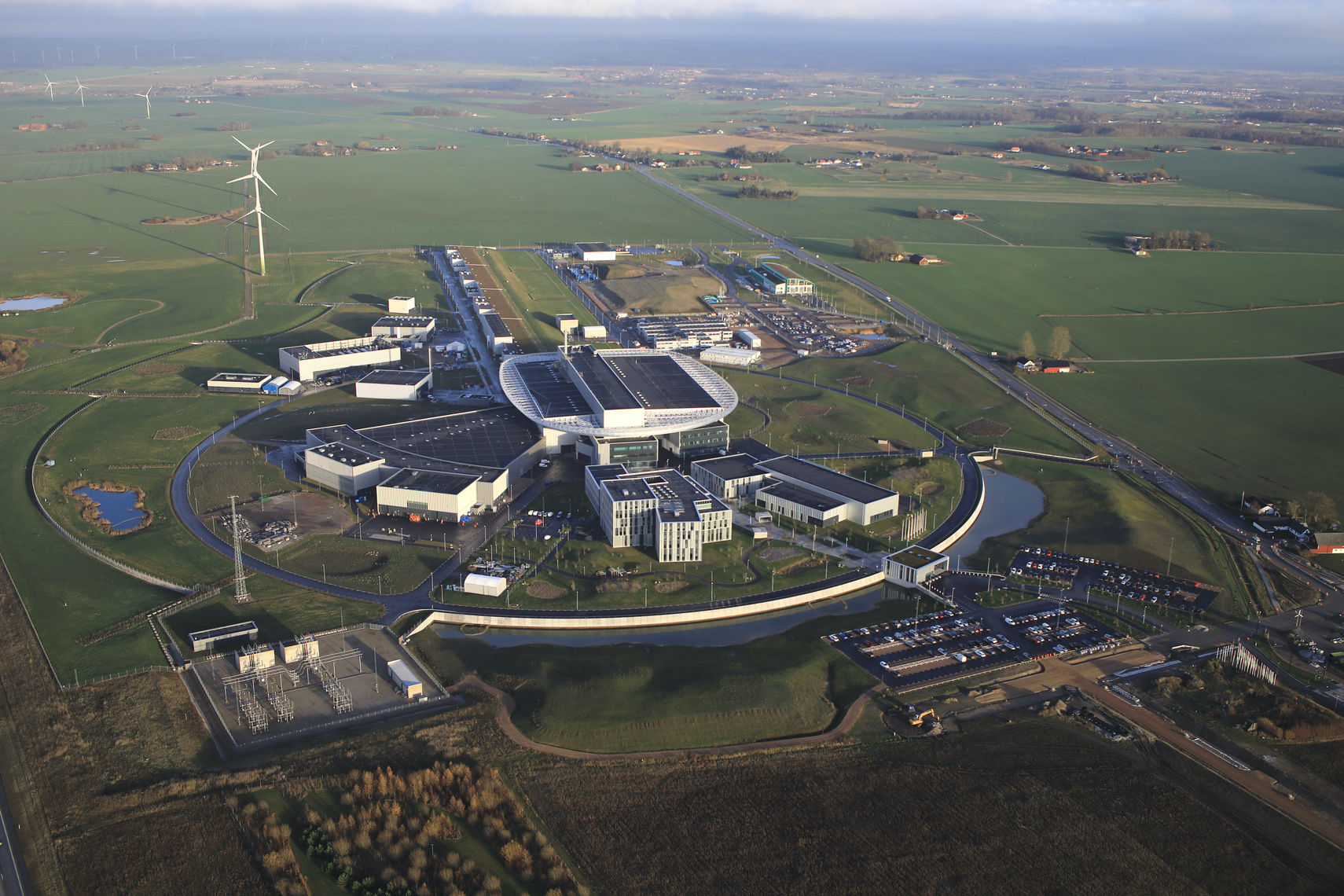
European Spallation Source (ESS) has finalised an extensive and thorough reassessment of the schedule for completion and additional costs, driven by delays caused by the on-going Covid-19 pandemic, as well as technical challenges. The new revised baseline for the ESS construction project entails a two-year-delay.
The civil construction at ESS will, despite challenges caused by the pandemic, be finalised before the end of the year and all the 23 buildings handed over on time to ESS by its construction partner Skanska. However, the ESS project as a whole has in the last years seen an accumulating schedule slippage and entailed extra costs.
For this reason, ESS has during the autumn carried out a thorough review of the project plan to ensure completion of the research facility at the earliest possible date in the most economical way. The detailed project plan has been scrutinised by the ESS Project Advisory Committee as well as more than 20 additional international experts on large scientific infrastructure constructions.
“We have worked hard to develop a new realistic project baseline, in close collaboration with our in-kind partners all over Europe,” said ESS Director General Helmut Schober. “We have strong confidence in our ability to deliver a world-leading research facility based on the new plan and will take all necessary measures to succeed.”
The adjusted plan for completion will enable ESS to be in full operations and open for scientific users in late 2027, instead of late 2025 as previously planned. At their December meeting, ESS Council, representing the 13 member countries, unanimously requested ESS to implement the plan, starting 1 January 2022. In addition, they reiterated that the construction scope of ESS is unchanged; 15 scientific instruments and an accelerator capable of 2MW beam power.
The two-year delay corresponds to a high degree with the duration of the pandemic, which has significantly impacted deliveries from partners and suppliers all over Europe as well as installation works on site. The additional costs are estimated to approximately MEUR 550, including 2026-27 operations costs of about MEUR 400.
“ESS Council is impressed by the efforts undertaken by all involved to establish this robust and resilient project plan, and we are convinced that ESS will be brought to completion accordingly”, said ESS Council Chair, Beatrix Vierkorn-Rudolph. “Council is working with the member states to provide funding of the additional costs.”
ESS will continuously scrutinise the plan, to minimise costs while ensuring success of the project.
























